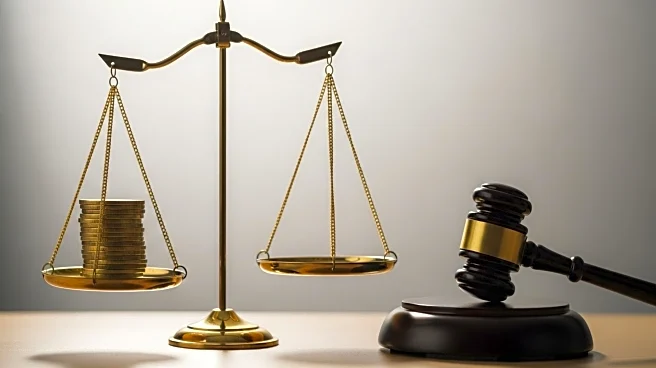What's Happening?
A federal appeals court in Washington, DC has ruled that President Trump's tariffs, imposed using the International Emergency Economic Powers Act (IEEPA), were unlawful. The court found that Trump had used these emergency powers to impose high import tax rates, including up to 50% on India and Brazil, and 145% on China. The ruling could lead to the U.S. Treasury refunding over $210 billion to American businesses that have paid these tariffs. The enforcement of the court's decision is delayed until October, allowing time for a potential Supreme Court review. Trump has indicated his administration is preparing to appeal to the Supreme Court to maintain the tariffs beyond the October deadline.
Why It's Important?
The court's decision has significant implications for U.S. businesses and the economy. If upheld, businesses could receive substantial refunds, potentially boosting liquidity and financial stability. However, the refunds could also lead to increased government borrowing, as the Treasury would need to return the collected tariff revenue. This situation could exacerbate inflation concerns, as the government might need to borrow more to cover its expenses. The ruling challenges Trump's use of emergency powers, potentially setting a precedent for future administrations regarding tariff imposition and economic policy.
What's Next?
The Supreme Court is expected to consider the case in its upcoming term, which begins next month. The tariffs will likely remain in effect during the appeal process. If the Supreme Court upholds the lower court's decision, the Trump administration will need to cease tariff collections immediately. The process for refunding tariffs remains uncertain, with possibilities including administrative refunds or requiring importers to file court actions. The Treasury Department has not commented on how refunds would be administered.
Beyond the Headlines
The potential tariff refunds could have broader economic implications, including affecting inflation and government borrowing. The decision also highlights the legal limits of presidential powers in economic policy, potentially influencing future administrations' approaches to international trade and emergency powers.









